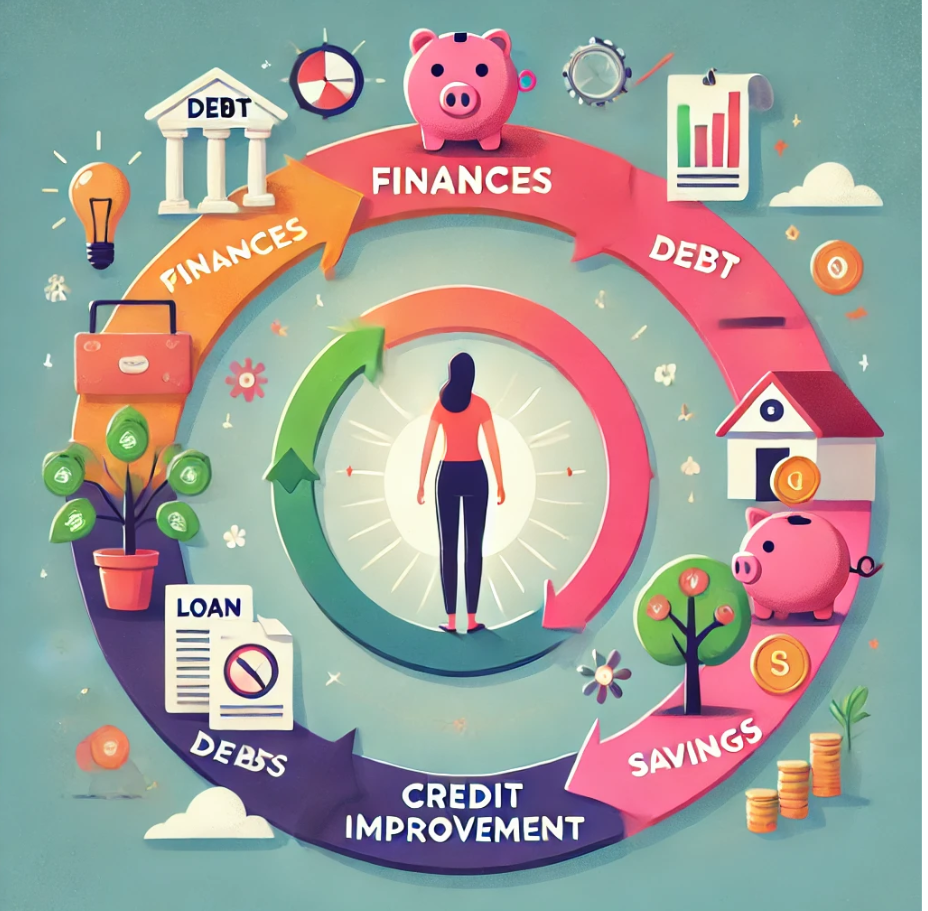Life is full of unexpected twists and turns, especially when it comes to money. Whether you’re launching a passion project, tackling a financial setback, or pursuing new career opportunities, your ability to adapt and stay financially nimble can make all the difference. The key isn’t perfection but preparation. By diversifying income streams, leveraging financial tools, and fostering resilience, you can confidently face whatever comes your way.
1. Understanding Financial Pivots
Financial crossroads appear when life-changing events—both positive and negative—reshape your financial landscape. These moments could include starting a new business, facing sudden medical expenses, or relocating for a job. Navigating these pivots requires a mix of careful planning and flexibility.
- Personal Milestones: Buying a home, starting a family, or retiring often come with significant financial commitments.
- Career Shifts: Switching industries, starting a side hustle, or pursuing entrepreneurship demands new strategies.
- Unexpected Challenges: Emergencies like job loss or unforeseen expenses test your ability to adapt.
Understanding when you’re at a financial crossroads allows you to make proactive, not reactive, decisions.
2. Build a Safety Net with Diversified Income
Relying solely on one paycheck can leave you vulnerable during financial transitions. Expanding your income sources enhances security and provides flexibility during challenging times.
- Multiple Revenue Streams: Freelancing, investments, or part-time work can supplement your primary income.
- Real Estate Ventures: Renting out property or investing in real estate investment trusts (REITs) can offer long-term returns.
- Digital Passive Income: Monetize content through blogs, courses, or online stores to create steady revenue.
Diversifying doesn’t mean overextending yourself—it’s about exploring manageable opportunities that fit your lifestyle.
3. Reframe Debt as a Strategic Tool
Debt often carries a negative stigma, but under the right conditions, it can be a stepping stone to growth. Whether you’re investing in education, launching a venture, or consolidating debt, borrowing strategically can help achieve long-term financial goals.
- Good vs. Bad Debt: Borrowing to acquire assets that appreciate over time (like a home or education) can be productive.
- Debt Repayment Plans: Ensure you have a structured repayment strategy to avoid falling into cycles of excessive borrowing.
- Stay Informed: Understanding the terms and interest rates of loans is crucial.
In cases where traditional options fall short, alternative solutions, such as a bad credit loan, may provide the necessary breathing room. Carefully evaluate the terms and ensure that it aligns with your broader financial strategy.
4. Why Your Credit Score Matters
Your credit score is more than a number—it’s a snapshot of your financial health and a key factor in accessing favorable financing. Many lenders use it to determine loan eligibility, interest rates, and terms.
- Impact on Loan Approval: A higher credit score can help you qualify for loans with lower interest rates.
- Rebuilding Credit: If your credit score is low, consider consolidating debts, paying bills on time, and keeping credit utilization below 30% to gradually rebuild it.
- Alternative Loan Options: For those with less-than-ideal credit, a bad credit loan can bridge the gap while you work on improving your score.
Understanding and managing your credit score is essential for navigating financial pivots with confidence and seizing opportunities without excessive borrowing costs.
5. Emergency Funds: Your Lifeline in Transition
During life’s financial pivots, an emergency fund is often the difference between stability and stress. Having cash reserves enables you to handle short-term disruptions without derailing long-term plans.
- Savings Target: Start with three months of living expenses, and increase it over time to six months or more.
- Automate Contributions: Regular deposits, no matter how small, add up over time.
- Separate Account: Keep your emergency fund distinct from your everyday checking account to reduce temptation.
This financial cushion gives you peace of mind and the ability to make decisions from a position of strength rather than fear.
6. Leverage Flexible Financing Options
While savings and steady income form the foundation of financial resilience, there are times when additional funding is necessary. Exploring flexible financing options ensures that you can seize opportunities or weather crises without disrupting your plans.
- Lines of Credit: Revolving credit lines offer flexibility for short-term needs.
- Peer-to-Peer Lending: Alternative platforms can be a source of fast funding.
- Small Business Loans: If you’re pivoting to entrepreneurship, specialized loans can help fuel your startup.
Having access to diverse funding options means you’re prepared, regardless of the situation.
7. Optimize Expenses During Transitions
When navigating major financial changes, cutting back on expenses can free up cash flow. But trimming costs doesn’t always mean sacrificing comfort—it’s about being strategic.
- Reevaluate Subscriptions: Cancel or pause services you don’t currently need.
- Negotiate Bills: Providers often offer discounts if you ask.
- Consider Downsizing: Moving to a smaller living space or selling unused assets can provide short-term relief.
Being proactive in managing expenses creates a buffer, giving you more breathing room as you navigate changes.
8. The Role of Mental Resilience in Financial Pivots
Financial resilience isn’t just about money—your mental approach plays a critical role. Major life changes can bring uncertainty, but having the right mindset helps you stay focused and motivated.
- Stay Positive: Focus on what you can control rather than what you can’t.
- Build a Support Network: Seek advice from mentors, financial advisors, or supportive friends and family.
- Reflect and Learn: Each financial challenge is a learning opportunity that can inform future decisions.
Cultivating a resilient mindset enables you to see obstacles as temporary and solvable.
Conclusion
Life’s financial crossroads can be daunting, but they’re also moments of possibility. By staying adaptable, embracing financial tools, and fostering both strategic and mental resilience, you can confidently navigate any transition. With the right preparation, what initially seems like a setback can often be a stepping stone toward future growth.











